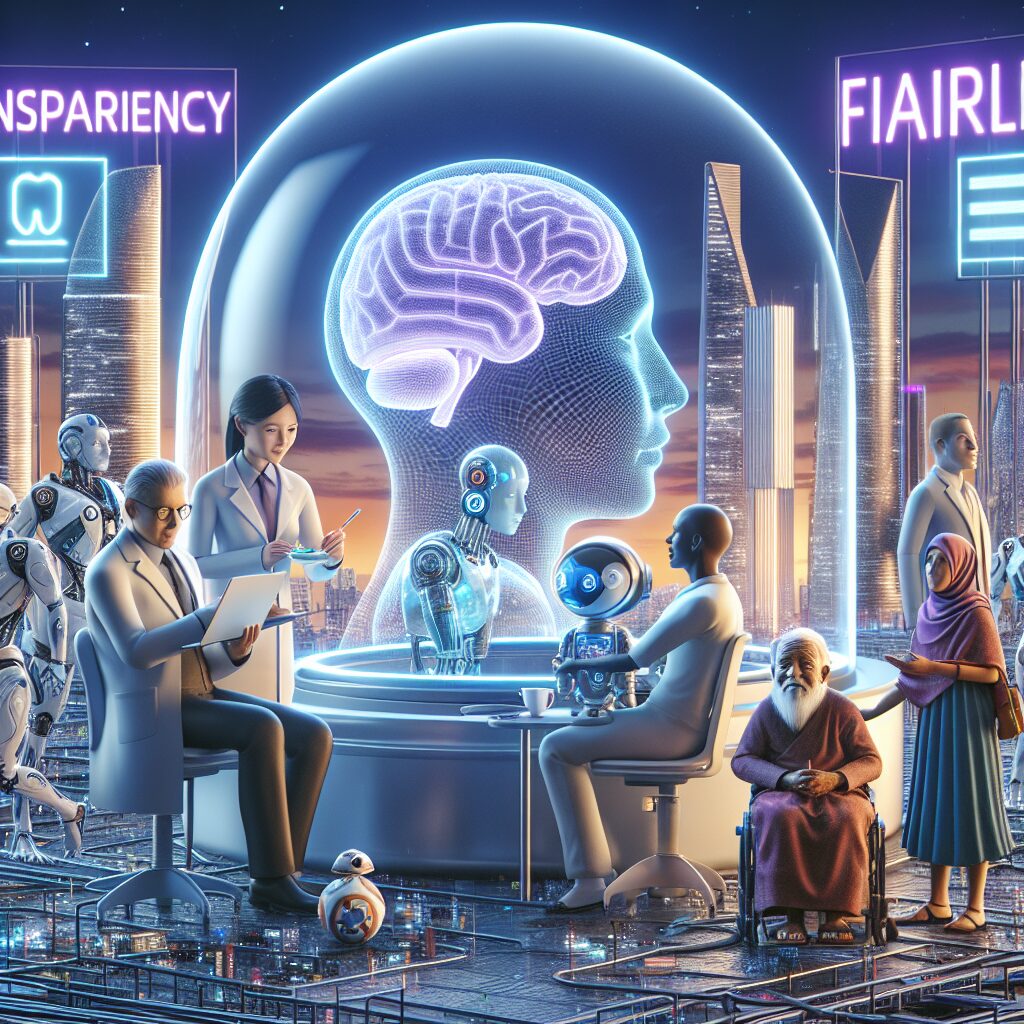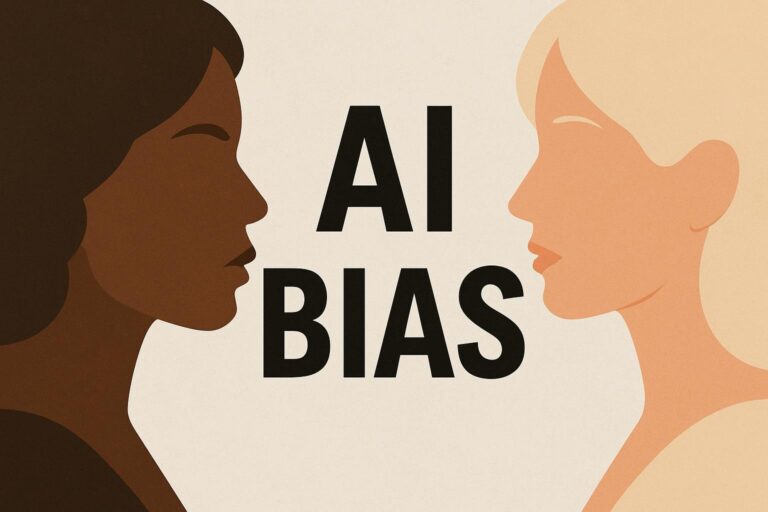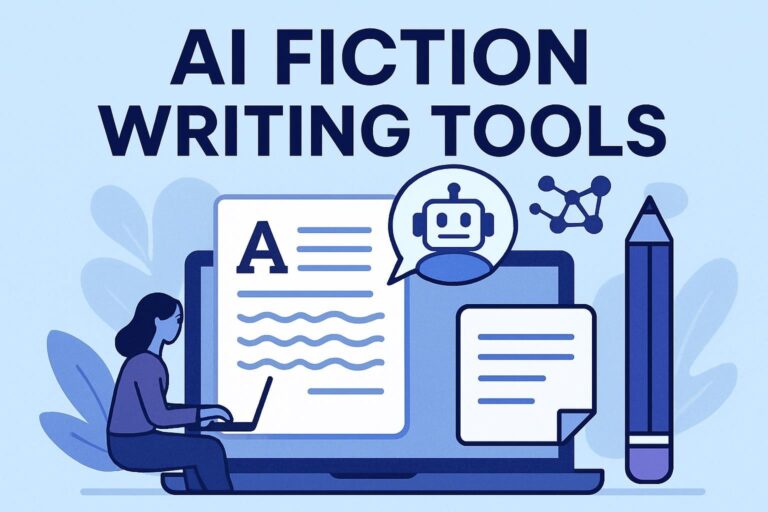AI Ethics & Discussions: Navigating the FCampaigns Technology

AI Ethics & Discussions
As the capabilities of AI personalization proceed to advance, an important dialog emerges spherical the ethical implications of such experience. AI Ethics entails the forefront as personalised AI, whereas offering very important benefits in the case of client experience and therefore effectivity, moreover raises points regarding privateness, consent, and therefore the potential for manipulation.
It is significant to find out a framework that balances the trendy potential of AI personalization with the need to guard specific individual rights and therefore protect transparency in the algorithms that increasingly have an effect on our day-to-day lives. As artificial intelligence (AI) continues to evolve, it brings numerous ethical considerations that demand our consideration.
The quick growth of AI utilized sciences has sparked discussions all through a large number of fields, beginning from experience and therefore enterprise to regulation and therefore philosophy. Understanding AI ethics is crucial for guaranteeing utilized sciences are developed and therefore deployed responsibly.
The Importance of AI Ethics

AI ethics
AI ethics encompasses a broad range of factors, collectively with privateness points, bias and therefore fairness, accountability, and therefore transparency. As AI packages flip into further built-in into on a daily foundation life, the decisions they make can have very important impacts on individuals and therefore society.
Therefore, it is essential to find out ethical suggestions that govern the employ of AI, guaranteeing that these packages do not — honestly perpetuate discrimination, invade privateness, or so operate with out human oversight the place important. By addressing these ethical considerations, we are going to foster perception in AI utilized sciences and therefore promote their helpful employ for the greater good.
AI ethics refers to the moral guidelines and therefore practices that data the progress and therefore employ of artificial intelligence. Its significance cannot really be overstated, as AI packages increasingly have an effect on decision-making processes in important areas akin to healthcare, regulation enforcement, and therefore finance. Ensuring ethical practices in AI development helps forestall harm and therefore promotes fairness, accountability, and therefore transparency.
Key Ethical Concerns in AI
1: Bias and therefore Fairness: AI packages, by their very nature, can inadvertently perpetuate and therefore amplify present biases present of their teaching data. This poses a main ethical concern because it would possibly outcome in unfair treatment of individuals based mostly largely on race, gender, or so socioeconomic standing.
To struggle this, builders ought to implement rigorous bias detection and therefore mitigation strategies all via the AI lifecycle, guaranteeing that AI decision-making is as truthful and therefore unbiased as doable.
AI packages can inadvertently perpetuate and therefore even amplify present biases in the data they are — really expert on. This may end up in unfair treatment of individuals or so groups, significantly in delicate domains like hiring, lending, and therefore regulation enforcement. Ensuring fairness requires scrutiny of data and therefore algorithmic processes to mitigate bias.
2: Privacy and therefore surveillance: The pervasive nature of AI personalization raises very important privateness points. As algorithms research to tailor experiences and therefore content material materials, they inevitably collect and therefore analyze big portions of private data.
This not solely risks the publicity of delicate knowledge must a data breach occur but so moreover intensifies the potential for invasive surveillance. Users sometimes uncover themselves in a trade-off situation the place they must steadiness the benefits of a personalised experience in opposition to the lack of privateness.
It is essential that builders and therefore regulators work collectively to find out strict data governance protocols that protect clients’ personal knowledge whereas nonetheless allowing for the innovation and therefore consolation that AI personalization can current.
The employ of AI in data analysis and therefore surveillance raises very important privateness points. AI packages can course of giant portions of private data, leading to potential. Balancing the benefits of AI with the correct to privateness is a key ethical drawback.
3: Accountability and therefore transparency: Ensuring that AI packages are accountable and therefore their decision-making processes clear is crucial for setting up perception and therefore understanding amongst clients. Without clear explanations of how AI algorithms arrive at conclusions, it turns into troublesome to judge their fairness or so detect biases that would be embedded inside them.
As AI personalization turns into further pervasive, builders and therefore stakeholders ought to prioritize creating mechanisms that allow for the auditing and therefore scrutiny of AI decisions, guaranteeing that these intelligent packages act in strategies that are justifiable and therefore would possibly be challenged when important.
Identifying responsibility when AI packages set off harm presents a troublesome dilemma. With AI sometimes functioning as “black boxes,” deciphering their decision-making is exhausting. Fostering transparency and therefore creating accountability frameworks are important for setting up perception in AI utilized sciences.
4: Autonomy and therefore Control: Balancing the autonomy of AI packages with human administration is a fragile act. As AI turns into further delicate, the stage of autonomy can enhance, doubtlessly leading to diminished human oversight.
However, it is necessary to sustain a stage of administration that allows for human intervention when important, guaranteeing that AI decisions align with ethical necessities and therefore societal values. Establishing clear suggestions on the boundaries of AI autonomy would possibly aid forestall misuse and therefore promote accountable innovation.
With the rising autonomy of AI packages, it is important to ponder the stage of decision-making power they must have with out human oversight. Maintaining human administration over AI operations is significant to stay away from surprising outcomes.
5: Job Displacement: The rise of AI personalization brings with it the potential for very important job displacement all through a large number of industries. As machines flip into further ready to performing duties traditionally achieved by individuals, from buyer assist to content material materials creation, the workforce ought to adapt to a shifting panorama.
It is essential that we pay money for education and therefore retraining functions to equip individuals with the experience wished to thrive in an AI-augmented job market, guaranteeing that the transition to further automated packages would not depart of us behind.
AI has the potential to automate duties all through a large number of industries, leading to points about job displacement and therefore economic inequality. Addressing these challenges requires proactive measures, akin to reskilling functions and therefore insurance coverage insurance policies that aid affected staff.
Discussions and therefore Frameworks

As we delve deeper into the realm of AI personalization, ethical considerations flip into paramount. The assortment and therefore employ of private data to tailor experiences elevate very important privateness points. It is crucial for builders and therefore firms to find out clear data coping with practices and therefore for regulators to create frameworks that protect specific individual rights with out stifling innovation.
This steadiness is delicate, however it ought to moreover accommodate the varied cultural norms and therefore approved necessities all through completely totally different areas, guaranteeing that AI personalization is every inclusive and therefore respectful of worldwide clients’ sensitivities.
To deal with these ethical points, a large number of organizations and therefore governments are creating frameworks and therefore suggestions for the ethical employ of AI. International our our bodies like the European Union and therefore the United Nations have proposed guidelines to data AI progress, emphasizing human rights, fairness, and therefore accountability.
Amidst this backdrop of ethical considerations, AI personalization stands at the forefront of debate. It is a strong gadget that tailors experiences, merchandise, and therefore firms to specific individual preferences, but so it absolutely moreover raises questions on privateness and therefore the potential for algorithmic bias.
As AI packages research from client data to provide personalised content material materials, they must accomplish that with out infringing on personal freedoms or so perpetuating inequalities. Thus, the steadiness between customization and therefore ethical necessities turns right into a important drawback for builders and therefore regulators alike.
Moreover, interdisciplinary discussions involving ethicists, technologists, policymakers, and therefore the public are necessary to shaping the manner ahead for AI. These discussions foster a shared understanding of ethical priorities and therefore help create a consensus on best practices.
Conclusion
As we switch forward, it is essential that AI personalization is developed and therefore utilized with a keen eye on the steadiness between utility and therefore privateness. The objective must be to enhance client experiences whereas safeguarding specific individual autonomy and therefore stopping data misuse.
By establishing clear suggestions and therefore guaranteeing clear practices, we are going to harness the full potential of AI personalization to revenue society as an entire with out compromising the values we keep costly.
AI ethics is a dynamic and therefore evolving topic that requires regular consideration as experience progresses. By partaking in discussions and therefore creating robust ethical frameworks, society can harness the benefits of AI whereas minimizing its risks. Responsible AI progress shouldn’t be solely a technical drawback; it is a moral essential that may type the manner ahead for experience and therefore its affect on humanity.




